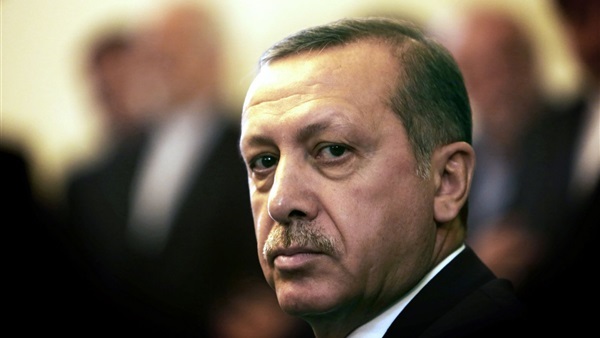Erdogan and Israel: privileges granted by Turkey to Zionist entity

In the second part of the file “Erdogan and
Israel, 17 Years of Forbidden Love”, we reviewed the development of military
relations between Turkey and Israel and how the Justice and Development Party
plotted against the Palestinian issue.
In the third part of the file, we deal with
the privileges that Turkey granted to the Zionist entity, and increased trade
relations under the rule of Turkish President Recep Tayyip Erdogan.
Trade with Israel increased tenfold in the era
of "justice and development party”
The Islamic world expected the decline of
cooperation between Turkey and Israel after the ruling Justice and Development
Party came to power in 2002, due to its alleged Islamic successor, but the
practical reality was otherwise, the Turkish pragmatism pushed them towards
Israel more.
Machiavellian Erdogan appeared in cooperation
with the Zionist entity, not only remained on the security and economic
partnerships signed by Suleiman Demirel, the former Turkish President, but also
worked to update and add new items to the agreement. In 2006 and 2007 he
granted preferential treatment to the Israeli partner.
In 2008, the two parties sought to include
commercial exchanges between them in a huge project called "Med
Stream", which is a multi-purpose pipeline that extends from Turkey to
Israel, from which the two countries benefit in the production of electricity
and the delivery of natural gas, crude oil and water.
Under this agreement, Turkey was transformed
to a financier of iron and steel, automobiles, plastics, clothing, and various
electrical and agricultural appliances for Israel.
The Marmara ship accident, in which 10 Turkish
activists were killed near the coast of Gaza at the hands of the Israeli
commando in May 2010, was a declaration of war on Ankara.
While the world expected an earthquake
response from Turkey in revenge for its citizens, none of this happened, and
relations remained between the two countries intact.
During the so-called “years of rupture”
between the two countries in the aftermath of the Marmara accident, in 2013,
the trade between Ankara and Tel Aviv reached $4.8 billion, $ 2.3 billion
Turkish exports to Israel, and $ 2.5 billion Israeli exports to Turkey.
By 2014, Turkey became the sixth largest
trading partner of Israel, with $ 5.3 billion, $ 2.6 billion, Turkish exports,
compared to $ 2.7 billion in Israeli exports.
In 2015, their trade volume reached 4.1
billion dollars, 2.4 billion dollars for Turkish exports, and 1.7 billion
dollars for Israeli exports.
Statistics of the International Monetary Fund
confirmed that Israel ranked tenth as the largest market for Turkish exports in
2017, as it bought goods worth approximately $ 3.4 billion from Turkey.





